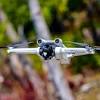The first attempt by a Japanese private company alone to land a satellite into space orbit ended in

The first attempt by a Japanese private company alone to land a satellite into space orbit ended in failure again.
According to Kyodo News and NHK on the 18th, the Japanese space venture company Space One launched the Kyros 2 from the private rocket launch site 'Space Photo Kii' in 串, Wakayama Prefecture, west of Honshu, at around 11 a.m. that day.
The Kyros 2 seemed to be flying normally, but Space One decided that it would be difficult to achieve the mission after launch, so it took measures to suspend the flight. The rocket exploded with a system that autonomously destroys the gas.
Space One said at a press conference later in the day that the flight was suspended three minutes and seven seconds after the launch, adding that "the cause is under investigation."
"When 80 seconds passed, there was an abnormality in the nozzle drive control of the first stage, and as a result, the posture of the rocket in flight seemed strange," a Space One official said. "The flight path was set to the south, but it crossed the limit line of the flight path set as it moved west."
The reason for the failure was the possibility that gas may have been ejected for some reason other than the combustion gas vent (nozzle). As a result, it was estimated that a force was generated in a direction different from the assumed direction, resulting in a loss of balance and rotation.
Space One said it would launch Kyros 3 early after determining the cause of the failure.
The Kyros 2 is a small solid fuel rocket, 18 meters high and weighing 23 tons. Taiwan's National Space Center (TASA) and five Japanese companies' satellites are on board. Among them, a small Buddha statue wishing for peace was attached to the first satellite at the request of a Kyoto temple.
The Kyros 2 was scheduled to sequentially separate the satellites in space at an altitude of about 500 kilometers after about 53 minutes from the launch.
Space One planned to launch Kyros 2 on the 14th and 15th, but both days were postponed due to strong winds over the launch site.
The Kyros No. 1, which the company previously launched in March this year, also exploded in the air after detecting an abnormality immediately after the launch.
Japan has been interested in Space One's project because it has been launching satellites centered on government agencies such as the Aerospace Research and Development Organization (JAXA).
Space One was created in 2018 with investments from IHI Aerospace and Canon Electronics. It aims to launch 30 small rockets a year in the 2030s.


 Canada
Canada Argentina
Argentina  Australia
Australia  Austria
Austria  Brazil
Brazil  Germany
Germany  Ireland
Ireland  Italy
Italy  Malaysia
Malaysia  Mexico
Mexico  New Zealand
New Zealand  Poland
Poland  South Africa
South Africa  United Kingdom
United Kingdom  United States
United States 



















